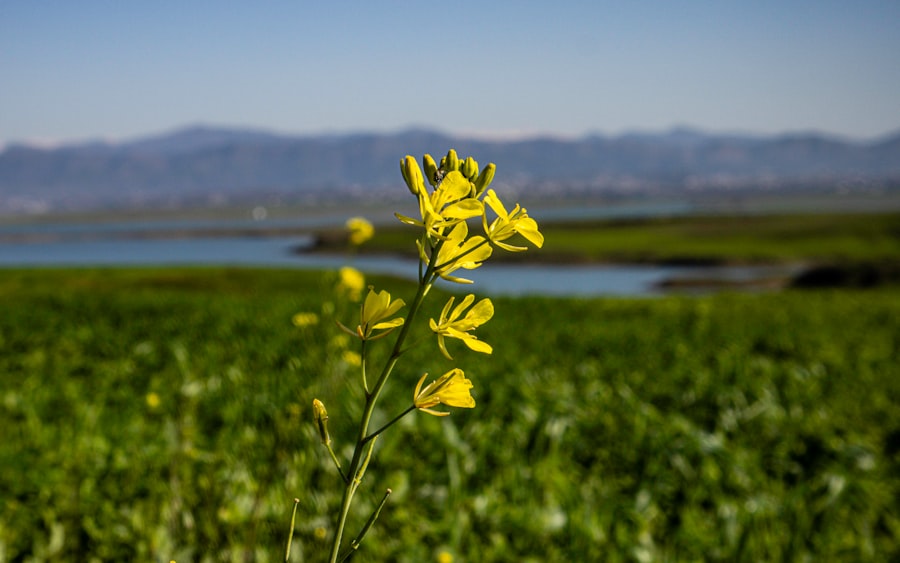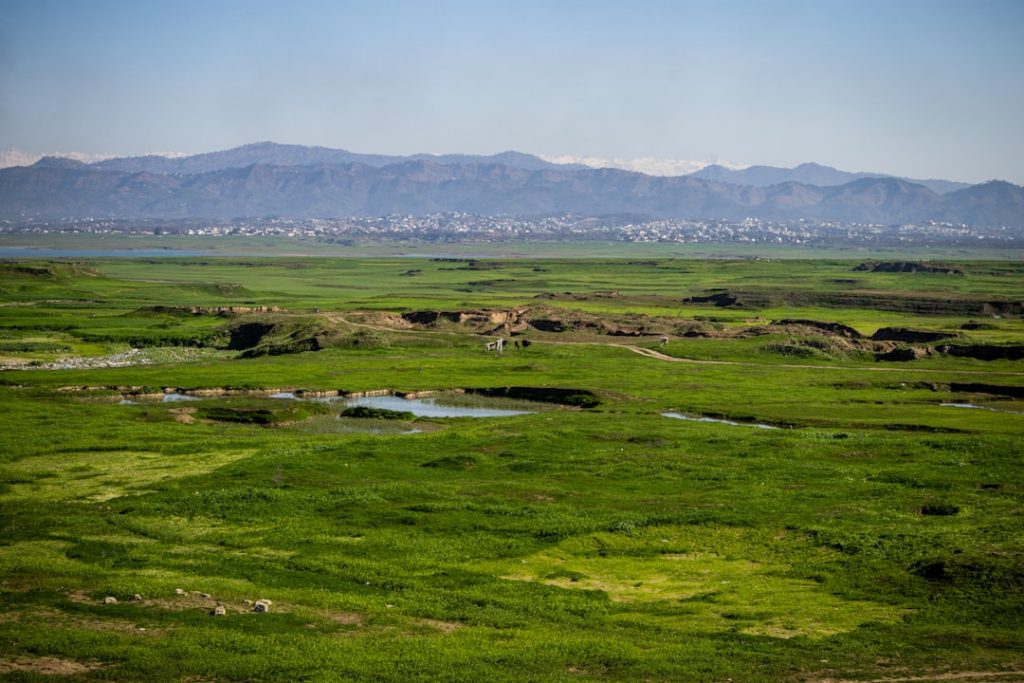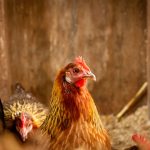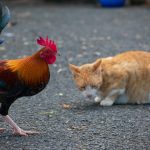Maintaining optimal temperature for broiler chickens is crucial for their health, welfare, and productivity. Broiler chickens are particularly vulnerable to heat stress, which can occur when they are unable to effectively dissipate excess body heat. This condition can lead to reduced feed intake, slower growth rates, and increased mortality rates.
Heat stress in broiler chickens can have significant economic implications for poultry farmers. The decreased growth rates and higher mortality rates associated with heat stress can substantially reduce the profitability of broiler chicken production. Therefore, implementing effective cooling strategies is not only beneficial for the chickens’ well-being but also for the financial success of poultry operations.
Poultry farmers must prioritize temperature management to prevent heat stress and its negative consequences. By understanding the importance of keeping broiler chickens cool and implementing appropriate measures, farmers can protect their flocks from the detrimental effects of high temperatures and maintain optimal production levels.
Table of Contents
- 1 Providing Adequate Ventilation in the Broiler Chicken Coop
- 2 Implementing Cooling Systems and Strategies
- 3 Managing Feeding and Watering to Keep Broiler Chickens Cool
- 4 Monitoring Broiler Chicken Behavior and Health in Hot Weather
- 5 Creating Shade and Shelter for Broiler Chickens
- 6 Consulting with Veterinarians and Poultry Experts for Further Advice
- 7 FAQs
- 7.1 What are broiler chickens?
- 7.2 Why is it important to keep broiler chickens cool?
- 7.3 What are some methods for keeping broiler chickens cool?
- 7.4 What temperature range is ideal for broiler chickens?
- 7.5 What are the signs of heat stress in broiler chickens?
- 7.6 How can I monitor the temperature for broiler chickens?
Key Takeaways
- Keeping broiler chickens cool is important for their health and well-being, as they are sensitive to heat stress.
- Adequate ventilation in the broiler chicken coop is crucial to maintain a comfortable and healthy environment for the chickens.
- Implementing cooling systems and strategies such as misting or evaporative cooling can help lower the temperature in the chicken coop.
- Managing feeding and watering schedules is essential to keep broiler chickens cool, as they may eat and drink less in hot weather.
- Monitoring broiler chicken behavior and health in hot weather is important to identify signs of heat stress and take necessary actions.
- Creating shade and shelter in the chicken coop can provide relief from the heat and protect the chickens from direct sunlight.
- Consulting with veterinarians and poultry experts can provide further advice and guidance on keeping broiler chickens cool and healthy in hot weather.
Providing Adequate Ventilation in the Broiler Chicken Coop
Consequences of Inadequate Ventilation
Without adequate ventilation, the buildup of heat and humidity can lead to heat stress and respiratory issues in broiler chickens.
Key Factors for Adequate Ventilation
Poultry farmers must prioritize ventilation in their chicken coops to ensure the well-being and productivity of their flock. This includes considering the design and placement of vents, fans, and windows to facilitate the flow of fresh air throughout the coop. Proper insulation and air circulation are also important considerations to maintain optimal environmental conditions for the chickens.
Benefits of Prioritizing Ventilation
By prioritizing adequate ventilation, poultry farmers can effectively mitigate the risk of heat stress and respiratory issues in their broiler chickens, ultimately promoting better overall health and productivity within the flock.
Implementing Cooling Systems and Strategies

In addition to providing adequate ventilation, implementing cooling systems and strategies is essential for keeping broiler chickens cool during hot weather. There are various methods that poultry farmers can utilize to help lower the temperature within the chicken coop and reduce the risk of heat stress in their flock. One common cooling strategy is the use of evaporative cooling systems, such as misters or foggers, which can help lower the ambient temperature and provide relief for the chickens.
Additionally, the use of fans and air circulation systems can help improve airflow and dissipate excess heat from the coop. Furthermore, implementing shading structures, such as awnings or reflective materials, can help reduce direct sunlight exposure and lower the overall temperature within the chicken coop. Providing access to cool, clean water is also crucial for helping broiler chickens regulate their body temperature during hot weather.
By implementing a combination of cooling systems and strategies, poultry farmers can effectively create a more comfortable and conducive environment for their broiler chickens, ultimately reducing the risk of heat stress and its associated negative effects on the flock.
Managing Feeding and Watering to Keep Broiler Chickens Cool
Proper feeding and watering management are essential components of keeping broiler chickens cool during hot weather. When temperatures rise, broiler chickens may reduce their feed intake, which can impact their growth rate and overall productivity. Therefore, it is important for poultry farmers to monitor and adjust their feeding practices to ensure that their chickens are receiving adequate nutrition despite the heat.
This may include offering smaller, more frequent meals throughout the day to encourage consistent feed intake. Additionally, ensuring access to cool, clean water is crucial for helping broiler chickens regulate their body temperature and stay hydrated during hot weather. Poultry farmers should regularly check water sources to ensure they are clean and free from contaminants, as well as monitor water consumption to identify any potential issues with dehydration.
By managing feeding and watering practices effectively, poultry farmers can help mitigate the effects of heat stress on their broiler chickens and promote better overall health and productivity within the flock.
Monitoring Broiler Chicken Behavior and Health in Hot Weather
Monitoring broiler chicken behavior and health is essential for identifying signs of heat stress and implementing appropriate interventions to keep them cool during hot weather. Poultry farmers should regularly observe their flock for any abnormal behaviors or symptoms that may indicate heat stress, such as panting, wing spreading, or reduced activity. Additionally, monitoring the overall health and condition of the chickens, including body weight and feed intake, can provide valuable insights into their well-being during hot weather.
In addition to visual observations, utilizing technology such as temperature sensors or environmental monitoring systems can help poultry farmers track changes in temperature and humidity within the chicken coop. This data can be used to make informed decisions about implementing cooling strategies and adjusting environmental conditions to better support the well-being of the broiler chickens. By actively monitoring broiler chicken behavior and health in hot weather, poultry farmers can proactively address any signs of heat stress and ensure that their flock remains cool and comfortable throughout the summer months.
Creating Shade and Shelter for Broiler Chickens

Shading Structures for Sun Protection
Implementing shading structures, such as awnings or tarps, within the chicken coop or outdoor areas is crucial for protecting broiler chickens from direct sunlight and high temperatures. These structures can significantly reduce direct sunlight exposure and lower the overall temperature, providing a more comfortable space for the birds to rest and seek relief from the heat.
Sheltered Areas for Heat Relief
Providing access to sheltered areas within the chicken coop or outdoor range can offer broiler chickens a place to escape from the sun and cool off during hot weather. Designated resting areas with ample ventilation and airflow can help lower the ambient temperature within the sheltered space, providing a cooler environment for the birds.
Mitigating Heat Stress and Promoting Comfort
By creating shade and shelter for broiler chickens, poultry farmers can help mitigate the risk of heat stress and provide a more comfortable environment for their flock to thrive in spite of high temperatures. This is essential for ensuring the health and well-being of the birds, as well as promoting optimal growth and productivity.
Consulting with Veterinarians and Poultry Experts for Further Advice
Consulting with veterinarians and poultry experts can provide valuable insights and guidance for implementing effective cooling strategies and managing heat stress in broiler chickens. These professionals can offer specialized knowledge and expertise in poultry health and welfare, as well as provide recommendations for specific cooling systems and management practices tailored to the unique needs of broiler chickens during hot weather. By seeking advice from veterinarians and poultry experts, poultry farmers can gain a deeper understanding of how to best support the well-being of their flock in challenging environmental conditions.
Furthermore, veterinarians and poultry experts can offer guidance on identifying early signs of heat stress in broiler chickens and implementing proactive measures to prevent its negative effects on their health and productivity. This may include recommendations for adjusting feeding practices, optimizing ventilation systems, or utilizing specific cooling technologies to create a more comfortable environment for the birds. By consulting with veterinarians and poultry experts, poultry farmers can access valuable resources and support to help them effectively manage heat stress and keep their broiler chickens cool during hot weather.
In conclusion, keeping broiler chickens cool during hot weather is essential for maintaining their health, welfare, and productivity. By understanding the importance of implementing cooling strategies, providing adequate ventilation, managing feeding and watering practices, monitoring behavior and health, creating shade and shelter, as well as seeking advice from veterinarians and poultry experts, poultry farmers can effectively mitigate the risk of heat stress in their flock. Through proactive management and thoughtful consideration of environmental conditions, poultry farmers can create a more comfortable and conducive environment for their broiler chickens to thrive in spite of high temperatures.
If you’re looking for tips on how to keep broiler chickens cool, you may also be interested in learning about the best kind of coop for chickens. Check out this article to find out more about creating the ideal environment for your chickens.
FAQs
What are broiler chickens?
Broiler chickens are a type of chicken that are specifically bred and raised for meat production. They are typically raised in large numbers in commercial poultry farms.
Why is it important to keep broiler chickens cool?
Broiler chickens are susceptible to heat stress, which can lead to reduced growth, decreased feed intake, and even mortality. Keeping broiler chickens cool is essential for their health and well-being, as well as for maximizing their growth and productivity.
What are some methods for keeping broiler chickens cool?
Some methods for keeping broiler chickens cool include providing adequate ventilation in the poultry house, using fans and misters to lower the temperature, providing access to cool, clean water at all times, and providing shade in the outdoor areas.
What temperature range is ideal for broiler chickens?
The ideal temperature range for broiler chickens is between 65-75°F (18-24°C). Temperatures above 85°F (29°C) can start to cause heat stress in broiler chickens.
What are the signs of heat stress in broiler chickens?
Signs of heat stress in broiler chickens include panting, increased water consumption, reduced feed intake, decreased activity, and spread wings. It is important to monitor the chickens closely for these signs during hot weather.
How can I monitor the temperature for broiler chickens?
You can monitor the temperature for broiler chickens using a thermometer placed in the poultry house. It is important to regularly check the temperature and make adjustments as needed to keep the chickens cool.
Meet Walter, the feathered-friend fanatic of Florida! Nestled in the sunshine state, Walter struts through life with his feathered companions, clucking his way to happiness. With a coop that’s fancier than a five-star hotel, he’s the Don Juan of the chicken world. When he’s not teaching his hens to do the cha-cha, you’ll find him in a heated debate with his prized rooster, Sir Clucks-a-Lot. Walter’s poultry passion is no yolk; he’s the sunny-side-up guy you never knew you needed in your flock of friends!







